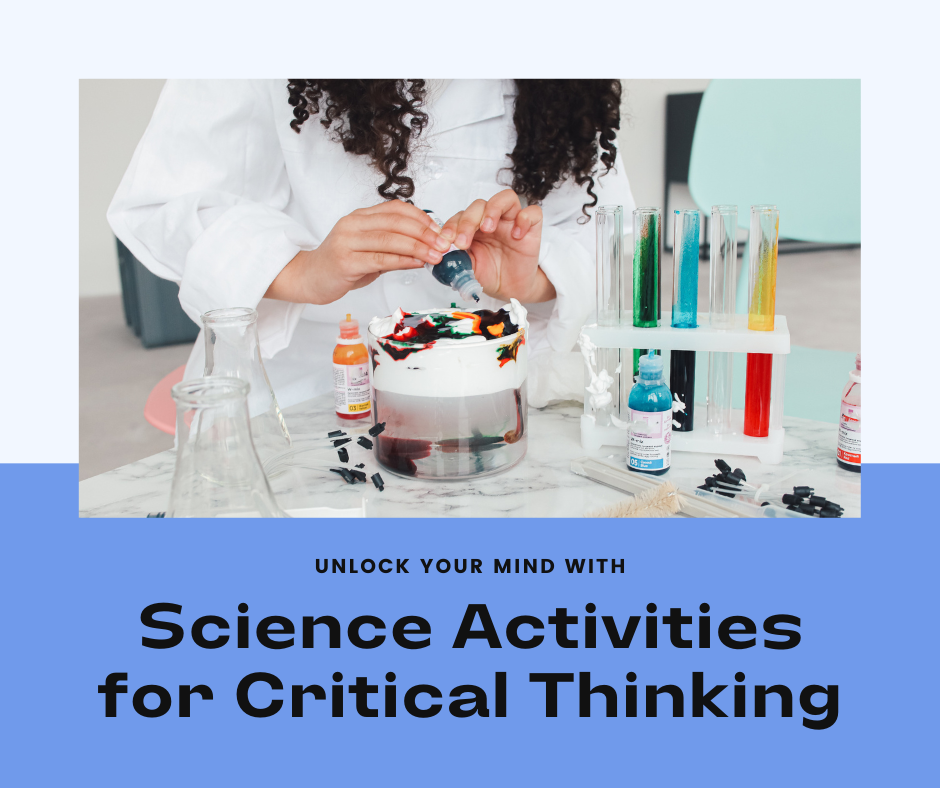

Are you ready for exciting science activities? Science and engineering are puzzles. They’re like adventures. You need curiosity to dive into details. As NGSS says, it’s all about getting into the heart of things.
…students cannot fully understand scientific and engineering ideas without engaging in the practices of inquiry and the discourses by which such ideas are developed and refined. At the same time, they cannot learn or show competence in practices except in the context of specific content. (NRC Framework, 2012, p. 218)
To understand science, you need to dive in. Roll up your sleeves! Get your hands dirty with activities. So, let’s start now! Here are some of my favorite science activities for critical thinking.
Wondering about the importance of teaching critical thinking through analysis, engineering, and exploration? It helps students:
Each reason is crucial. Together, they highlight the need for teaching critical thinking. It profoundly impacts learners. Now, let’s explore those activities.
Need fast activities for your daughter? Check out Julie Bogart’s “Raising Critical Thinkers. A Parent’s Guide to Growing Wise Kids in the Digital Age.” It’s full of challenges for parents and students.
An example? The “Fact Strainer” exercise in Chapter 2. Kids sift facts from stories. They find facts in news articles about the same event. They highlight where these facts appear, like at the beginning, middle, or end. Then, they list the facts on paper in the order they found them.
Discuss why facts are placed where they are. What was the author’s goal? The exercise teaches spotting facts first. It helps ignore the writer’s bias. Bogart’s book has even more ideas along these lines.